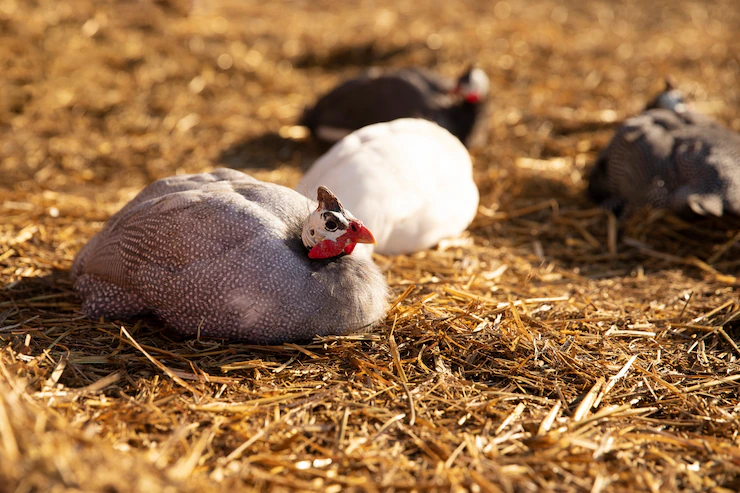Guinea fowl farming has gained popularity in South Africa due to the demand for its lean and nutritious meat, flavorful eggs, and natural pest control abilities. If you’re considering venturing into guinea fowl farming, it’s essential to familiarize yourself with the key aspects of this industry. In this article, we will explore ten important factors you should know before starting guinea fowl farming in South Africa.
- Suitable Housing and Space Requirements: Guinea fowl requires secure and spacious housing to protect them from predators and harsh weather conditions. Provide well-ventilated coops or shelters with adequate perching space. Allocate at least 1 square meter per guinea fowl to ensure their comfort and minimize stress.
- Knowledge of Guinea Fowl Behavior: Understanding guinea fowl behavior is crucial for successful farming. Guinea fowl are highly social birds that thrive in groups. They have a strong instinct for foraging, pest control, and maintaining a hierarchical structure. Learn about their natural behaviors and specific needs to provide a suitable environment.
- Feeding and Nutrition: Guinea fowl have unique dietary requirements. They are excellent foragers, primarily feeding on insects, seeds, and vegetation. Supplement their diet with high-quality commercial feeds containing essential nutrients, proteins, vitamins, and minerals. Consult with experts to develop a balanced feeding program.
- Disease Prevention and Health Management: Implement robust biosecurity measures to prevent the introduction and spread of diseases. Regularly monitor the health of your guinea fowl and establish a relationship with a poultry veterinarian. Vaccination protocols, parasite control, and hygiene practices are essential for maintaining a healthy flock.
- Breeding and Incubation: Guinea fowl are seasonal breeders, usually laying eggs during spring and summer. Familiarize yourself with their reproductive behavior, egg collection, and incubation techniques. Guinea fowl eggs require specific temperature and humidity control during incubation for successful hatching.
- Market Demand and Product Diversification: Research the market demand for guinea fowl products in South Africa. Explore opportunities beyond meat and eggs, such as feathers and ornamental guinea fowl for the pet market. Identifying niche markets and potential buyers will help optimize your profitability.
- Financial Planning: Develop a comprehensive business plan that includes detailed financial projections. Consider costs associated with housing, feed, healthcare, marketing, and potential losses. Financial planning is crucial for determining the feasibility and sustainability of your guinea fowl farming venture.
- Predator Control: Guinea fowl are vulnerable to predation. Implement effective predator control measures, such as secure fencing, guard animals, or electronic deterrents. Protecting your flock from predators will minimize losses and ensure their safety.
- Regulatory Compliance: Understand and comply with the legal requirements and regulations related to guinea fowl farming in South Africa. Register your farm, obtain necessary permits, and adhere to animal welfare standards. Non-compliance can lead to legal complications and jeopardize your business.
- Networking and Continuous Learning: Join local poultry associations, attend workshops, and connect with experienced guinea fowl farmers. Networking opportunities and continuous learning will provide valuable insights, keep you updated on industry trends, and help you overcome challenges effectively.
Embarking on guinea fowl farming in South Africa offers exciting opportunities. By considering the ten factors mentioned above, you’ll be better equipped to start and manage a successful guinea fowl farming enterprise. Remember to prioritize the well-being of your flock, stay informed about industry developments, and adapt to market demands to ensure the long-term viability of your business.
Image by Freepik
Join 'Farmers Mag' WhatsApp Channel
Get the latest Farming news and tips delivered straight to your WhatsApp
CLICK HERE TO JOIN






